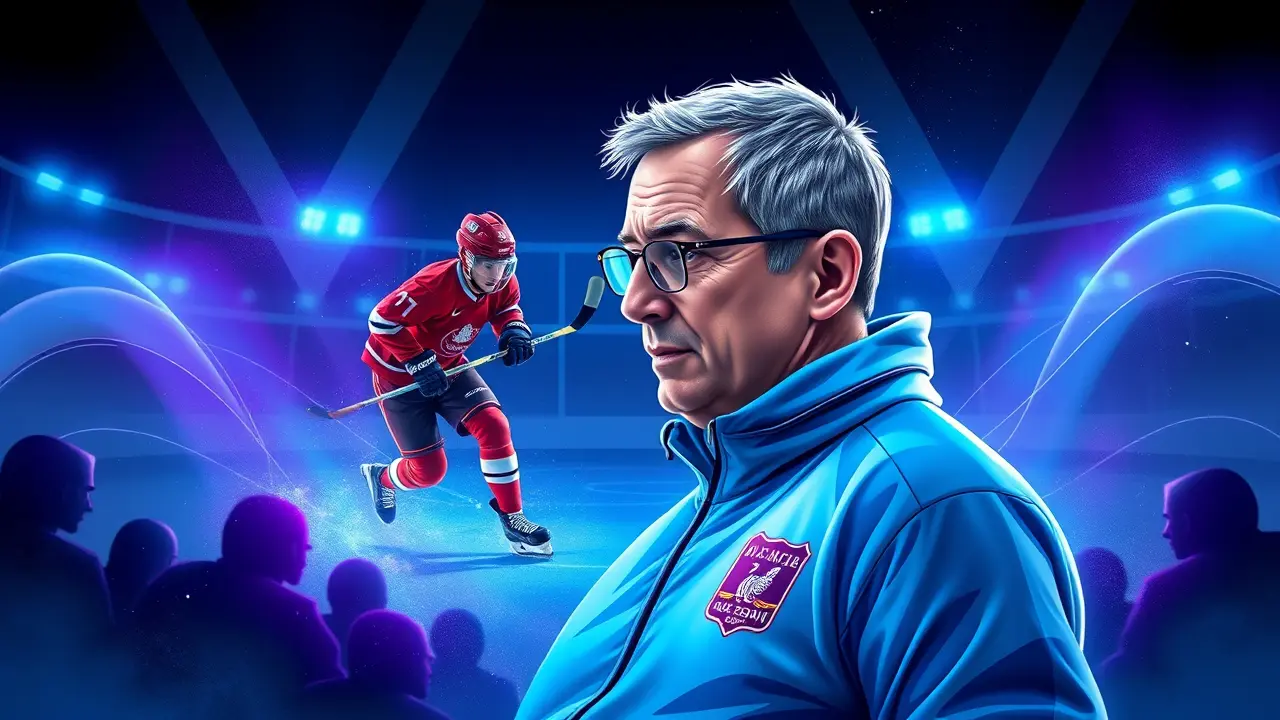
SporthockeyKHL
Roman Rotenberg compares hockey and football training methods.
JA
Jack Turner
3 weeks ago7 min read6 comments
Roman Rotenberg, the head coach of 'Russia 25' and first vice-president of the Russian Ice Hockey Federation, recently offered a fascinating glimpse into his cross-sport philosophy, revealing a deep appreciation for football that informs his hockey methodology. In a discussion that transcended the typical boundaries of sport-specific coaching, Rotenberg, who is also a member of the board of directors for FC Dynamo Moscow, articulated a modern coach's creed: the relentless pursuit of competitive advantage through interdisciplinary learning.'Of course, I love sports in general,' he stated, positioning himself not just as a hockey man but as a perpetual student of athletic excellence. His frequent attendance at Dynamo matches is more than mere fandom; it's a field study.He specifically highlighted the transferable qualities of speed and sprint mechanics, noting, 'in modern hockey, speed, what we saw from the guys, speedy guys, sprint, start speed, the same things work in football. ' This isn't a superficial observation.It speaks to a fundamental shift in high-performance training where the physiological demands of elite team sports are converging. The explosive first-step acceleration required by a winger like Matvei Michkov to beat a defender has a direct parallel in a footballer like Konstantin Tyukavin bursting past a full-back.Both actions are powered by similar anaerobic systems, muscle fiber recruitment, and neural pathways. Rotenberg’s approach involves deconstructing these athletic actions to their core components, seeking training stimuli and drills from football that can be adapted to sharpen a hockey player's edge.This mirrors the analytical revolution in football itself, where clubs like Liverpool under Jürgen Klopp have systematized gegenpressing, a concept that, while tactical, is built on a foundation of supreme physical conditioning that could offer lessons for hockey's forechecking systems. Rotenberg emphasized the importance of open dialogue among colleagues, a practice that breaks down the silos that often isolate coaching fraternities.'When we communicate with colleagues, we exchange opinions,' he said, suggesting a collaborative ecosystem where a conversation with Dynamo's coaching staff or an observation of another team's training regimen could spark an innovation. This ethos of shared knowledge is crucial in an era where marginal gains are the difference between gold and silver.He extended profound respect to all coaches, but reserved special praise for the grassroots level, acknowledging the 'huge labor' of youth coaches who work 'from morning until night. ' This recognition is vital; the technical foundation, work ethic, and love for the game instilled at the youth level are the raw materials with which national team coaches like Rotenberg build their squads.The players he marvels at for being 'very skillful' are the end products of a vast, often unheralded, developmental pipeline. His perspective suggests a holistic view of the sporting pyramid, where success at the apex is inextricably linked to the health of the base. Ultimately, Rotenberg’s commentary paints a picture of a 21st-century sports leader—one who is as comfortable analyzing a football match as a hockey game, who sees athleticism as a universal language, and who understands that the future of coaching lies not in guarding secrets, but in building bridges across the entire sporting landscape to cultivate the next generation of Russian athletic talent.
#Roman Rotenberg
#hockey
#football
#coaching
#training methods
#speed
#featured
Stay Informed. Act Smarter.
Get weekly highlights, major headlines, and expert insights — then put your knowledge to work in our live prediction markets.
Related News
Comments
Loading comments...
© 2025 Outpoll Service LTD. All rights reserved.